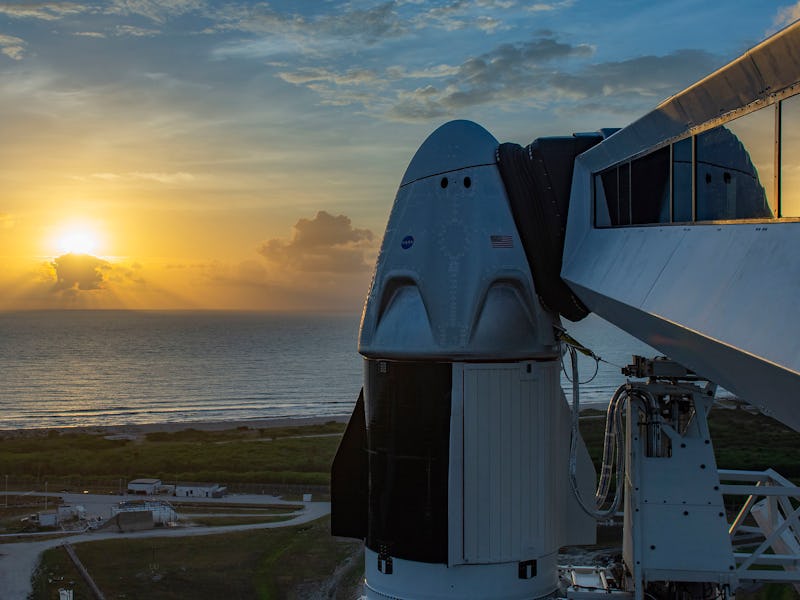SpaceX Crew Dragon: why Rocket Lab CEO says NASA did ‘the right thing’
The human-carrying capsule has sparked widespread conversation about the future of space travel.

SpaceX's Crew Dragon, the human-carrying capsule, is attracting praise from other major firms.
The capsule is the culmination of years of work with the NASA Commercial Crew program, designed to develop a means to send humans to and from the space station from the United States. It's a project that transforms SpaceX into a firm that sends humans into space, paving the way for its more ambitious plans like a city on Mars.
Rocket Lab, which alongside SpaceX is one of the only companies to ever launch a satellite into orbit, has watched this project unfold – and its CEO has been impressed.
The California-based firm has been making a name for itself as a small satellite launcher that offers greater flexibility to firms, enabling them to choose their own launch terms instead of riding alongside others on a bigger rocket. So far, it's launched 48 small satellites. Speaking with Inverse, CEO Peter Beck says the Crew Dragon's first test launch is "super exciting."
"I think it's wonderful," Beck says. "I think NASA did exactly the right thing."
Beck went on to explain how the achievement helps push spaceflight in all-new directions:
"Human spaceflight to the space station should be commercial. There's no reason for a government to do that. And governments are really good at doing things where there's no financial incentive to do it. There's either patriotic, or national security, or other reasons to do these things. The moment that it falls out of those realms, there's no point in a government doing it, because a commercial enterprise will probably do it better, cheaper, faster. And governments are not known for all of those things. So I think it was a masterstroke. I think we're really gonna start to yield the foresight of those decisions. With the upcoming launches, it's super exciting."
The emergent new space race, which involves private companies as well as national agencies, has been a long time coming. Elon Musk was originally inspired to move into spaceflight and start SpaceX after looking on NASA's website at the start of the new millennium. Although NASA accounted for 4.4 percent of government funding in 1966 and sent humans to the moon in 1969, Musk was despondent that the agency hadn't continued its momentum and started planning a trip to Mars.
This new race features firms like Richard Branson's Virgin Galactic, Jeff Bezos' Blue Origin, and more. It's the work of campaigners like Rick Tumlinson that worked to open up spaceflight to more competition and ideas.
Rocket Lab CEO Peter Beck.
Perhaps little surprise, then, that these new players have been supportive of each others' efforts and encouraged the competition to progress. After Rocket Lab caught an orbital rocket using a helicopter in March 2020, Musk highlighted the firm's work on Twitter as "cool" while noting that orbital rocket launches are "hard." Musk also offered words of support to Virgin Orbit after its orbital rocket failed to complete its mission.
The Inverse analysis – Beck's analysis is just one of the many signs of how the new players in the space race are supporting each other's efforts. But his view that government agencies should not be involved in spaceflight may not be shared by everyone.
During an Inverse interview this month, one of the astronauts on the Crew Dragon mission Doug Hurley said that more ambitious missions like the moon and Mars are "absolutely...going to be a combination of the public and private sector." This is because "flying in space is expensive," but the "innovation and agility" of a private company can help add a "huge amount" to be successful.
This is perhaps best highlighted by the Crew Dragon mission, itself a collaboration between SpaceX and NASA. The pair will also be travelling to the International Space Station, the results of another collaborative project. But with supportive words like these about other players in the space race, a supportive approach of some form looks set to win the day.